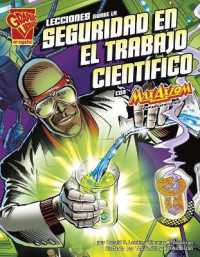Full Description
Bioethics tells a heroic story about its origins and purpose. The impetus for its contemporary development can be traced to concern about widespread paternalism in medicine, mistreatment of research subjects used in medical experimentation, and questions about the implication of technological developments in medical practice. Bioethics, then, began as a defender of the interests of patients and the rights of research participants, and understood itself to play an important role as a critic of powerful interests in medicine and medical practice. Autonomy and the Situated Self argues that, as bioethics has become successful, it no longer clearly lives up to these founding ideals, and it offers a critique of the way in which contemporary bioethics has been co-opted by the very institutions it once sought (with good reason) to criticize and transform. In the process, it has become mainstream, moved from occupying the perspective of a critical outsider to enjoying the status of a respected insider, whose primary role is to defend existing institutional arrangements and its own privileged position. The mainstreaming of bioethics has resulted in its domestication: it is at home in the institutions it would once have viewed with skepticism, and a central part of practices it would once have challenged. Contemporary bioethics is increasingly dominated by a conception of autonomy that detaches the value of choice from the value of the things chosen, and the central role occupied by this conception makes it difficult for the bioethicist to make ethical judgments. Consequently, despite its very public successes, contemporary bioethics is largely failing to offer the ethical guidance it purports to be able to provide.
In addition to providing a critique, this book offers an alternative framework that is designed to allow bioethicists to address the concerns that led to the creation of bioethics in the first place. This alternative framework is oriented around a conception of autonomy that works within the ethical guidelines provided by a contemporary form of virtue ethics, and which connects the value of autonomous choice to a conception of human flourishing.
Contents
Introduction
Chapter 1: The Chimeric Self: Exploring the Landscape of Bioethics
Chapter 2: The Troubled Self of Bioethics: The Unhappy Offspring of Immanuel Kant and J.S. Mill
Chapter 3: The Divided Self: Liberal Politics and the Rise of Autonomy in Bioethics
Chapter 4: The Choosing Self: Bioethics and the Paradox of Autonomy
Chapter 5: The Gendered Self: Bioethics and the Feminist Critique
Chapter 6: The Virtuous Self: Autonomy and Value
Chapter 7: The Suffering Self: Illness Narratives and the Postmodern Divide
Chapter 8: The Storytelling Self: The Place of Case Studies in Bioethics
Chapter 9: The Situated Self: Freedom and Virtue
Notes






